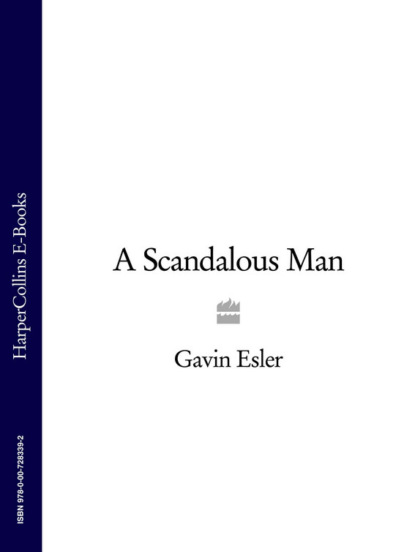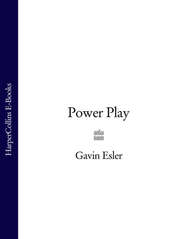По всем вопросам обращайтесь на: info@litportal.ru
(©) 2003-2024.
✖
A Scandalous Man
Автор
Год написания книги
2019
Настройки чтения
Размер шрифта
Высота строк
Поля
‘You think we wouldn’t bale you out? And let Labour back in? Jeez, Robin, no way.’
Hickox was correct, of course. The Labour party was in one of its self-destructive phases, hijacked by the Impossibilist Left, the ones who preferred keeping their ideological purity to getting elected. They wanted to abandon nuclear weapons. The Falklands victory and their own catalogue of stupidity meant they’d be unelectable for years.
‘We’ll talk,’ Hickox said.
‘I’ll look forward to it.’
Well, well. An accidental Argentinian tango had taken us from defeat to victory in a few easy steps. Almost at the very end of the conflict, a few days after British troops had finally re-taken Port Stanley, I was invited to a Foreign Office drinks party. It was not officially a celebration. That would have been premature and a bit un-British. But the Foreign Office mandarins – with their usual ability to sniff political careers the way dogs sniff each other’s bottoms – had decided – sniff, sniff – that I might – sniff, sniff – make Foreign Secretary one day. My ascent had taken me ahead of Jack Heriot, and he was graceful enough to admit it.
‘Well done, Robin,’ a card from Heriot read. ‘Primus interpares.’
First among equals, the usual description of the Prime Minister.
Looking back on it, I think that the FCO party was the moment when I was at the very top of my game. My reputation at the Treasury was high. The civil servants there understood what we were doing to liberate the economy. And now at the MoD and the Foreign Office they had begun to treat me with something close to respect. Three of the top four ministries in HMG had something good to say about me. The Lady noticed. The Americans noticed. Everybody noticed.
I made sure my press secretary gave a couple of briefings – off-the-record, of course – outlining the key role I had played with the Reagan administration, without giving away too many details. When the press asked me to confirm my role I was shocked – shocked – that anyone had leaked such a sensitive matter. I thundered that one should never comment on matters affecting national security. Loose lips sink ships. What fun! My conceit and arrogance expanded to fill the available space. I was asked to help draft the manifesto for the 1983 election. I was asked to prepare my plans for selling off state-run industries. I was asked to address party gatherings all over the country. I was applauded in Cardiff and Perth, in Manchester and Leeds. I was offered a top speaking slot at the autumn party conference. I was on Newsnight so often, one of the presenters joked I made more appearances on BBC television than he did. I think that all of this helps explain – though it does not excuse – what happened when I met Leila again, and this time learned her name. I thought I could do no wrong. Or if I did, that no one would ever find out.
There was to be no escape, for either of us.
The Foreign Office drinks party was in the Locarno Suite. It’s one of the greatest function rooms in Whitehall, a magnificent old-fashioned barn big enough to stage an opera, or from which to govern an Empire. Some of the performances in the Locarno Suite have been truly operatic. I entered with a peculiar feeling of nervousness, without knowing why. People were falling over each other to talk to me. That old cliché about power being an aphrodisiac, perhaps. More accurately, a pheromone.
‘Hello, Robin … oh, Robin, it’s you … Mr Burnett good to see you … Robin, how delightful …’
Within minutes of entering the Locarno Suite I was surrounded by lobby reporters. They were looking for some kind of high-grade gossip, an insight into what would happen next, now that the war was more or less won. What might monetarism and trade union reform mean in practice, now that the Lady’s administration was not just an historical blip? It was taken for granted that we would win the next election, just as a few months before it had been taken for granted that we would lose. Conventional Wisdom is about as reliable as the hemlines of women’s skirts for predicting the political future. Some of the brighter ones in the Locarno Suite wanted to know whether the cost of re-taking the Falklands might blow public spending and the economy off course. I said it had blown our politics back on course.
‘You do things because they are right,’ I boomed at them. ‘Not because they are cheap. Defending British citizens and British interests against a proto-fascist Argentinian dictatorship was the right thing to do. We will pay for it. But we will do so proudly, because that is the nature of this country.’
There was a lot of harrumphing at this.
‘Despite what now looks like the certainty of the Falklands victory you have to admit that immediately before it, the government was never less popular,’ a blue-stocking type from The Times insisted. She dripped frustration of all kinds. One of the soft lefties from the BBC chimed in.
‘If you win, you have to thank Galtieri. It will be a khaki election, not an endorsement of your economic policies.’
‘Not true,’ I replied. ‘Everyone understands that we won a difficult war after being attacked. Explaining how we are turning the economy around takes more time. But government is a package. It is everything that we stand for, not a few separate bits and pieces, not a la carte. And we are very clear about it.’
‘So you admit you have failed to communicate to the voters how you are managing the economy?’ The Times bluestocking shot back at me.
‘Well, I have obviously failed to communicate it to TheTimes,’ I said. ‘Though I daresay I have communicated it successfully to your proprietor.’
I could feel her intake of breath. The Times hacks were all shit scared of Rupert Murdoch. We were quite respectful of him too.
‘Please understand me. British governments do NOT manage the economy, though some are deluded enough to think they do. Governments set a few broad conditions and then the economy manages itself. Invisible hands. And while we expect British sailors to manage Exocets, I think the rest of us can manage to turn around the opinion polls.’
There was laughter at this.
‘The unions will never submit to the kind of reforms you are demanding,’ a stout, balding fellow from the Guardian told me. He was swallowing copious amounts of cheap Foreign Office claret, as if desperate to get his share. When he spoke I started to imagine that his tongue was too big for his mouth, like a claret-swilling frog. I remember it was stained purple. I had a glass of red in my hand but looking at him I could not bear to drink from it and put it down on a table. I was desperate for a decent whisky.
‘It’ll be back to Ted Heath and the three-day week with the miners,’ the woman from The Times agreed.
‘Winter of Discontent will be like a sideshow,’ another said.
‘Challenges ahead,’ was all I said. ‘You are all correctly noting that there are definitely big challenges ahead.’
I was growing tired of the sparring, but at that moment Leila entered the Locarno Suite. Heads turned, including mine and – as I could see – that of the Deputy Foreign Secretary Jack Heriot. Leila had the grace of a ballet dancer. Her dress whispered on her body. I swallowed hard.
‘Let me introduce the CBS News correspondent in London.’ An American diplomat, Peter Doberman, steered her into the room. ‘Jack Heriot, Her Majesty’s Deputy Secretary of State for Foreign and Commonwealth Affairs, please welcome Leila Rajar.’
‘I do believe we have met once before,’ Heriot said smoothly, shaking her hand and looking into her eyes. ‘Perhaps at one of the news conferences here during the conflict?’
‘I do believe we have,’ Leila responded, her voice measured and firm. ‘I’ve been here a few months – since the start of the Falklands crisis. And it’s certainly a pleasure to see you again, Mr Deputy Secretary.’
Mr Deputy Secretary. Oh, how Heriot loved that.
‘The pleasure is mine, Ms Rajar,’ he beamed. Creep. I walked towards them.
‘We are always ready to improve on the Special Relationship,’ Heriot was saying with a smile that contained within it a leer.
You are too old for her, Jack, I remember thinking. But she is not too young for you.
Leila’s eyes flickered towards me. I could see that she thought Heriot was being a creep as well. I smiled inwardly at her good judgement.
‘Let me also introduce –’ the American diplomat began, nodding towards me, but Leila interrupted him.
‘Oh, I know who this is, Peter,’ she said, turning her smile towards me. ‘Professor Burnett, you wowed us all at the Kennedy School summer lectures a few years ago.’
Did I?
‘Robin did what?’ Jack Heriot said in disbelief. ‘He … wowed you?’
‘Oh, yes, he wowed everybody. It was the Kennedy School of Government in Harvard. Do you remember, Professor Burnett?’
‘Yes,’ I answered. I remembered Harvard. But I did not remember her. ‘I was …’
Leila interrupted.
‘… a visiting lecturer in – I’d guess – summer of 1978 or thereabouts. During the worst of the Carter Days, and just after the worst for you folks here in Britain too. Strikes. Oil shocks. Stag-flation. I remember you gave a lecture as part of the supply-side economics forum called Defeating Defeatism – how to beat inflation and other ills of the modern economy. Something like that.’
‘You remember it?’ I beamed inwardly.
‘Remember it? I still have the notes,’ she laughed, and the laughter danced in my heart. ‘I was with the New York Times, writing a piece about world economic prospects. I was scheduled for an interview with John Kenneth Galbraith. While I was waiting for the great man I thought I’d catch this new Brit performer who offered entirely the opposite view to that of Galbraith …’
‘I think the word you are looking for is “professor”, rather than performer,’ Heriot said unhelpfully. ‘Though “performer” probably works for Robin too.’
‘Performer, professor, whatever …’ she laughed again, but refused to be deflected. ‘Anyway, there was this new Brit who was saying the impossible, that inflation could be tamed, the unions could be controlled, and the Soviet Union could be outspent into economic disaster if we only had the wit, nerve and optimism to do it.’
I blushed.
‘I may have said all that, but I didn’t exactly invent it. Hayek and Friedman … ’






